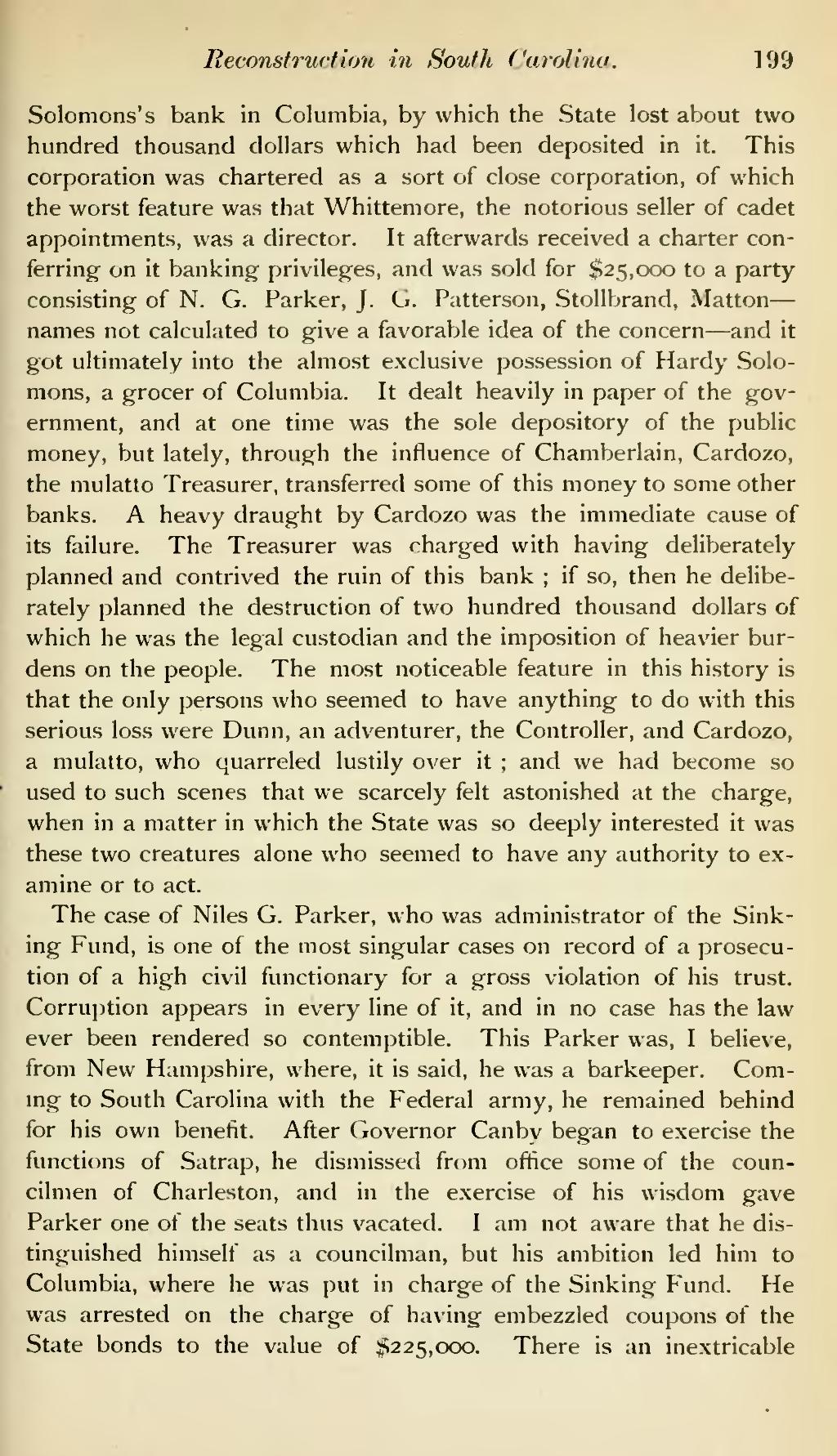Reconstruction in South Carolina. 199
Solomons' s bank in Columbia, by which the State lost about two hundred thousand dollars which had been deposited in it. This corporation was chartered as a sort of close corporation, of which the worst feature was that Whittemore, the notorious seller of cadet appointments, was a director. It afterwards received a charter con- ferring- on it banking privileges, and was sold for $25,000 to a party consisting of N. G. Parker, J. G. Patterson, Stollbrand, Matton — names not calculated to give a favorable idea of the concern — and it got ultimately into the almost exclusive possession of Hardy Solo- mons, a grocer of Columbia. It dealt heavily in paper of the gov- ernment, and at one time was the sole depository of the public money, but lately, through the influence of Chamberlain, Cardozo, the mulatto Treasurer, transferred some of this money to some other banks. A heavy draught by Cardozo was the immediate cause of its failure. The Treasurer was charged with having deliberately planned and contrived the ruin of this bank ; if so, then he delibe- rately planned the destruction of two hundred thousand dollars of which he was the legal custodian and the imposition of heavier bur- dens on the people. The most noticeable feature in this history is that the only persons who seemed to have anything to do with this serious loss were Dunn, an adventurer, the Controller, and Cardozo, a mulatto, who quarreled lustily over it ; and we had become so used to such scenes that we scarcely felt astonished at the charge, when in a matter in which the State was so deeply interested it was these two creatures alone who seemed to have any authority to ex- amine or to act.
The case of Niles G. Parker, who was administrator of the Sink- ing Fund, is one of the most singular cases on record of a prosecu- tion of a high civil functionary for a gross violation of his trust. Corruption appears in every line of it, and in no case has the law ever been rendered so contemptible. This Parker was, I believe, from New Hampshire, where, it is said, he was a barkeeper. Com- mg to South Carolina with the Federal army, he remained behind for his own benefit. After Governor Canby began to exercise the functions of Satrap, he dismissed from office some of the coun- cilmen of Charleston, and in the exercise of his wisdom gave Parker one of the seats thus vacated. I am not aware that he dis- tinguished himself as a councilman, but his ambition led him to Columbia, where he was put in charge of the Sinking Fund. He was arrested on the charge of having embezzled coupons of the State bonds to the value of #225,000. There is an inextricable
